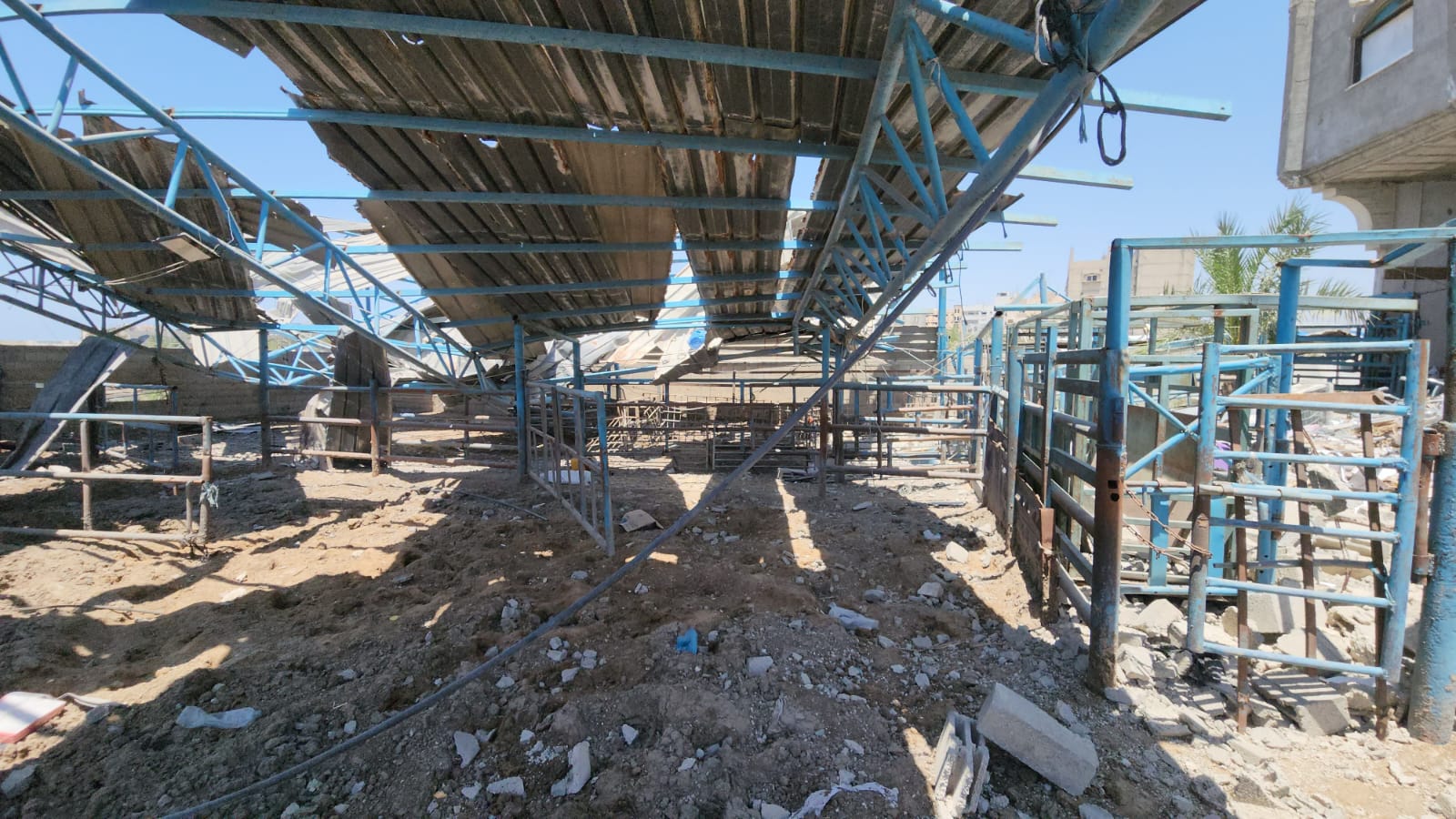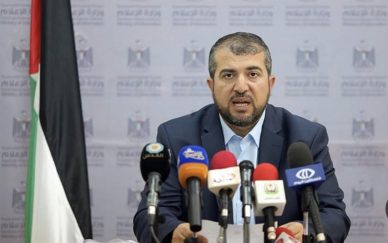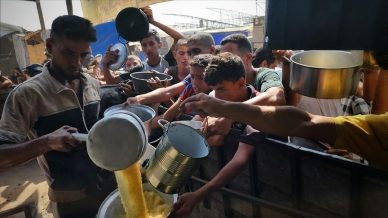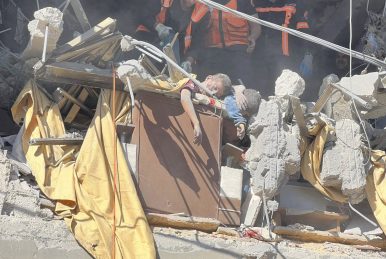By Wafa Aludaini
Rasmiyyah Eid was supposed to be in Saudia Arabia performing the ritual pilgrimage, or hajj. Instead, she is trapped in the beleaguered Gaza by the ongoing Israeli carnage since October 2023.
“While the pilgrims wear the white Ihram garments, the people of Gaza wear white shrouds,” the Palestinian mother of 5, Rasmiyyah comments. “We sold everything of value to pay for this trip, and we waited 10 years on the waiting list, but now with the closure of Rafah crossing, our life dream is dashed.”
Palestinians who wish to make ordinarily hajj register their names with the Ministry of Awqaf and Religious Affairs, typically waiting up to several years for their turn, which is chosen according to lottery. However, the list for this year was canceled due to the incessant bombardment and the closure of Rafah Crossing, the vital sole remaining link between Gaza and the rest of the world after Israeli occupation troops invaded and occupied the besieged region.
Each year, Muslims from across the Middle East and around the world travel to and perform the sacred pilgrimage of Hajj in Makkah in Saudi Arabia, typically requiring some travel between several locations in and around the vicinity of Makkah. Rasmiyya compared the tradition to the conditions she, her family, and other displaced Gazans are experiencing. “Instead of walking in Makkah and circling Ka’bah peacefully, we are forcibly displaced from one area to another, circling here and there looking for food and clean water amid fear and hunger.” Rasmiyya points blame at the leaders of Muslim nations, in particular Saudi Arabia and the UAE, for ignoring the genocide in Gaza. “When all Muslims wear the same clothes during Hajj, the Saudi Arabia and Emarati leaders should remember that we are all the same.”
The Gaza the Ministry of Awqaf and Religious Affairs and other groups organized several protests calling for their religious rights and appealing the international community to help in opening Rafah Crossing.
The current atrocity hangs over all the rites and rituals of Eid al-Adha or the festival of sacrifice. It is celebrated on the third day of Hajj and lasts for three days. Eid al-Adha is the second major Muslim festival after Eid al-Fitr.
During this holiday, Muslims customarily sacrifice one goat, sheep, or lamb per eligible person, with larger animals like cows and camels possibly to be shared amongst seven people. The meat from any sacrificed animal is then shared with the poor, as well as relatives and friends.
Standing in front of his livestock warehouse, which has been turned from his workplace into a shelter for displaced people, Ali Qerdrah, owner of one of livestock warehouses in Khan Yunis, complained, “Every year during these days, this place used to be full of sheep, goats and cows with dozens of customers all day, but now it’s been turned into a makeshift tent zone sheltering several families.” Ali painfully reported that this year, there will be no rituals for Eid al-Adha. “I used to have at least 500 to 600 livestock animals, but this year I have only two due to the closure of crossings.”

Since October 8th last year, the Israeli occupation authorities have intensified their blockade on Gaza. All crossings with the coastal enclave have been completely shut down, and all kinds of goods are denied entrance into besieged Gaza including livestock and animals’ feed. “Many of the animals died from lack of animals’ food,” Ali continued, telling us that during the past years, despite the blockade and widespread poverty, he had customers every holiday, but this year everything is missing.
Hassan Azzam, Director General of Veterinary Services at the Ministry of Agriculture in the Gaza Strip, points out that the livestock sector has become completely destroyed. He said, “The majority of the large Palestinian farms are located near the separation fence with Israel, and they were razed at the beginning of this Israeli aggression.”
He explained, “Now there are only very few citizens’ farms left, which are close to their homes and far from the buffer zone.” Azzam continued, “The closure of the Gaza Strip crossings is another essential factor for the scarcity of sacrificial animals in all regions from north to south,” due to the lack and scarcity of fodder, especially after Palestinians in the northern Gaza Strip were forced to use it for human consumption amid the stifling siege and severe shortage of food supplies.
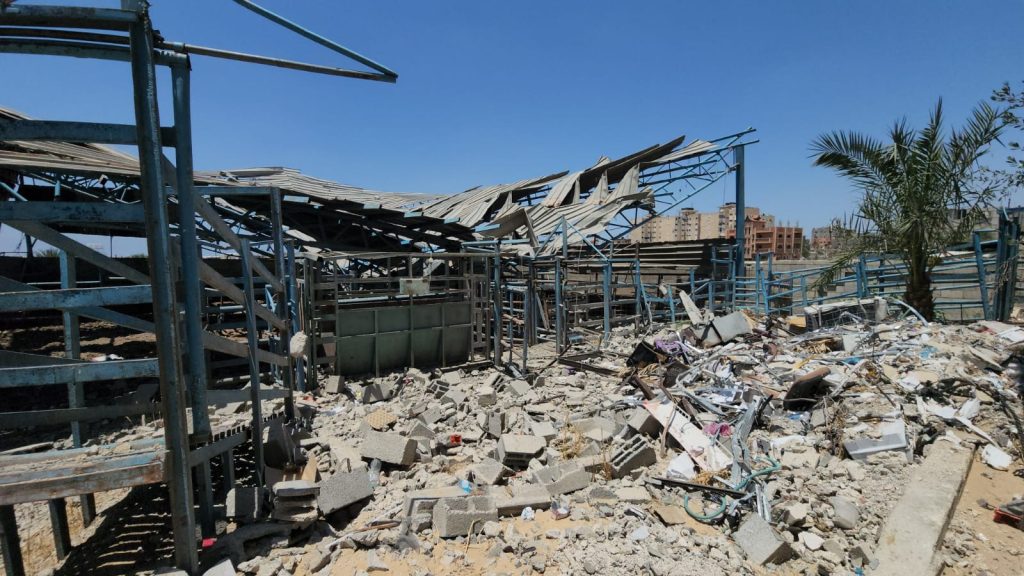
The customary preparations for Eid al-Adha celebrations have disappeared across the wrecked Gaza Strip. Mother of six Neama Eid, 45, recalled, “We used to decorate our houses, streets, mosques but this Eid there are neither homes nor mosques or decorations. The Israeli airstrikes reduced entire city blocks, neighborhoods, villages, and refugee camps to rubble, after blocking our tiny enclave and isolating it from the rest of the world.”
“Amid the man-made starving campaign that we are facing, we can’t make candies or cookies because there are no basic ingredients to be found here,” Naema told PIC, going on to explain in sadness that it is typical to go shopping this time of year, buying new clothes and toys for children.
“Amid the complete closure of borders along with the destruction of clothes stores and companies and houses, we can’t find new Eid clothes or toys.” Then she said, “I will miss my brothers and relatives this Eid, they were martyred and missed.” Yet, what is most cruel to Naema is that two of her brothers are still missing: one of them is still trapped under the rubble of his destroyed house with three of his children, all of whom have yet to be recovered, and the other is still missing. For all Palestinians, like Naema, this holiday comes with a sharp ache in their hearts, yet many say they will celebrate in their make-shift tents camps because it’s the day of Allah, and the celebrations will please the children. Eid al-Adha in Palestine will be observed on June 16.
-Wafa Aludaini is a Gaza-based journalist. She contributed this article to the Palestinian Information Center.

